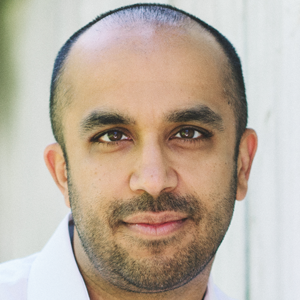One day Alice came to a fork in the road and saw a Cheshire cat in a tree.
“Which road do I take?” she asked.
“Where do you want to go?” was his response.
“I don’t know,” Alice answered.
“Then,” said the cat, “it doesn’t matter.” —Lewis Carroll, Alice’s Adventures in Wonderland
Mr. Wilson was my guidance counselor. He had a shiny head holding two fluffy-cloud patches of gray hair on the sides and wore thick glasses and loose-fitting gray T-shirts while helping students with timetables, college applications, and personal problems.
Everybody loved Mr. Wilson.
I talked to him about summer jobs and he calmed me down during exams. He had a quiet, big-picture worldview that helped us get above ourselves and see beyond life in our hometown.
You could tell Mr. Wilson loved his job by the way his eyes twinkled as he bounced through the halls, spouting hellos and high-fiving students, calling everybody by name. He was always smiling, and our school was his home.
Back when I was in high school, the government had mandatory retirement. You turned sixty-five and poof! The government yanked you out of the workforce in a cloud of smoke and moved you straight on to old-age pension. You had no choice. And let’s face it—almost everybody wanted to retire way before sixty-five, anyway. TV ads preached “Freedom 55” with gray-haired couples skipping town to swim at the cottage, play golf, and sail into the sunset.
Retirement is a good thing. A great thing! What everybody wants, dreams about, wishes for, over and over and over and over…until it finally comes.
Do whatever, whenever, wherever…forever? Sounds like a good deal!
The funny thing is that when Mr. Wilson retired he didn’t look happy. None of us did. We had the big celebration with cake, music from the band, and teary speeches from former students. It was like the final scene in Mr. Holland’s Opus. Mr. Wilson said he was excited to be retiring, but his thin smile and wet eyes said the opposite.
But mandatory retirement came at age sixty-five and so he retired.
The next week he had a heart attack and died.
*****
It doesn’t matter which way you go if you don’t know where you’re going.
Trending: Navy SEAL Secrets for High Performance Under Pressure
Sure, we all have bad days at work. Bosses agitate, coworkers frustrate. But work gives us purpose, belonging, and direction. Retirement plucks us out of the spinning gears of the world and drops our withered bones off at the beach. Now you’re nowhere, with nothing to do and nowhere to go. Ever again!
Where did retirement even come from? Why did we think this was a good idea? Who came up with this plan? The Germans. Yes, it was their invention of retirement completely out of the blue in 1889 that established the concept for all of us. Retirement was meant to free up jobs for young people by paying those sixty-five years and older to do nothing till they died.
But there was one big difference between 1889 Germany and the world we live in today. Back then the average lifespan was sixty-seven years old.
“Those who are disabled from work by age and invalidity have a well-grounded claim to care from the state,” said Otto von Bismarck, chancellor of Germany, in 1889. Given retirement age and average life span were two years apart, that was easy for him to say. Penicillin wasn’t discovered for another forty years!
Otto ended up setting an arbitrary world standard for retirement age at sixty-five. The number had no significance other than its proximity to the age people died. Other developed countries kept following suit in the years to follow, which brings us to today.
Work gives us so much—free and simple gifts we are given every day. These gifts are worth much more than any numbers on a paycheck, because they help us live truly rich lives. The freedom you feel from a satisfying job beats the oppressing ache of emptiness any day.
Let’s remember three things demonstrated by this:
Retirement is a new concept. It didn’t exist before the twentieth century anywhere in the world except Germany. It didn’t exist before the nineteenth century anywhere.
Retirement is a Western concept. It doesn’t exist in Okinawa, Japan or much of the developing world. Old people in those places don’t play golf every day. They contribute to their families and societies.
Retirement is a broken concept. It is based on three assumptions that aren’t true: that we enjoy doing nothing instead of being productive, that we can afford to live well while earning no money for decades, and that we can afford to pay others to earn no money for decades.
*****
Let’s break it down why we should work into what I call the 4 S’s of work.
SOCIAL
Today study after study shows that it is our social connections that are the single biggest driver of our happiness. The number one reason why work is important is because it is social. It’s what adds richness to our days.
Carpooling, mentor sessions, open work settings, team charity drives, conferences, listening groups, appreciation emails, Friday team breakfasts, starting the meeting with recognition, business book clubs, lunchtime running groups, networking dinners, going to the gym together, even figuring out meeting politics.
We need to be social to be happy. Work provides major social stimulation.
STRUCTURE
What d o Warren Buffett, Jay Z, Barack Obama, Oprah Winfrey, Brad Pitt, Mark Zuckerberg, Bono, Ellen DeGeneres, the Dalai Lama, and Bill Gates all have in common?
Sure, they’re famous, they’re rich, but there’s something else.
Trending: How to Make Menopause the Best Time of Your Life
They all have 168 hours in their weeks. No more, no less. The richest man in the world can’t buy more time. It’s just not for sale. So the question isn’t how can we create more time but how can we use our time more effectively? We can’t acquire time. But we can structure our time so we can get more out of our lives.
Work provides this structure. Work even pays for this structure.
Every Monday morning, every single person on Earth is given 168 hours and they have to spend every one of them by the strike of midnight on Sunday. Because time is something we made up, something we placed over the chaos of life to organize our lives, something that is free, easy, and always there…we don’t feel the pain of wasting it.
Make sure the thing you’re spending your time doing is something you love.
STIMULATION
Having a sense of stimulation is about embracing your inner three-year-old! Every day at work, you experience hundreds of tiny joys. They’re easy to overlook. But work exposes us to simple joys every day.
When I speak to companies I ask everybody in the audience to spend thirty seconds writing down one awesome thing that happens to them at work. We leave cue cards on their chairs beforehand. Then I ask people to trade their cue card with somebody who they’ve never talked to before. And then we read the cue cards in front of the room. That’s when we realize that in a span of seconds we came up with thousands of awesome things together.
The point is that work gives us a place to learn and discover so many new things about our lives and our world. We don’t hire our co-workers! So there are diverse ages, backgrounds, experiences, and thoughts that we don’t always get from friends and family. Retiring slices off this learning, seeing, and experiencing the stimulation of our world.
STORY
Every company has a story!
Coke wants to give the world happiness breaks. Harvard Business School is educating leaders who make a difference in the world. Facebook is making the world more connected. Wikipedia is giving the sum of human knowledge to every single person for free. The Red Cross prevents and alleviates human pain and suffering. Google is organizing the world’s information.
When you’re working you become part of something bigger than yourself. Volunteer at the library and you spread knowledge to the community. Teach at the college and you’re developing productive members of society. Write for the city’s biggest blog and you’re creating community.
What does retiring do? It chops you out of a productive story. You aren’t part of something bigger than yourself anymore.
*****
I will never get the chance to ask him about it, but I’m sure the saddest I saw Mr. Wilson was on those final few weeks before he retired. He didn’t want to go. He loved the students, he loved the school, he loved helping kids navigate their paths in life.
The government forced him to give up the thing he wanted most. They took away Monday-morning coffees with the guidance office secretaries, hallway walks at lunch, and the energy from a thousand teenagers every day. They took away his sense of helping kids through family troubles, failing grades, and anxiety about decisions. They took away the things he loved the most.
Trending: Microsoft, Google, and Beyond: What Business at the Cutting-Edge of AI Looks Like
Mr. Wilson taught me that retirement, as we think of it today, isn’t a dream we actually want. We don’t actually want to do nothing. We just want to do something we love.
Hazel McCallion was ninety-three years old when she decided she would retire from being mayor of Mississauga, Ontario, Canada’s fifth-largest city. That’s after she held the job for more than forty straight years, winning twelve straight elections, and outlasting eight Canadian prime ministers.
Why did she keep going nearly thirty years after “retirement age”?
“There are still challenges,” she said. “I don’t know what I’d do. And I want to keep busy.”
We want challenges. Challenges let us contribute a sense of giving, learning, and improving to ourselves and the world. We feel alive. We experience life. We feel like we can do anything.
According to Merriam-Webster, retirement means “withdrawal from one’s position or occupation or from active working life.” In other words, dropping out and going home. Dropping your withered bones off at the beach. What happens when you withdraw from active working life? You idle, which is defined as “to spend time doing nothing.” What happens when you do nothing? You get bored.
Is that what you want?
So what’s the dream we all have that is completely wrong?
Retirement. There is no pot of gold.
The world has far more problems, opportunities, and challenges than it has people like you to do interesting and meaningful work on them. There is so much you can do. There are so many places to go. I know when you look you’ll always find meaty projects and passionate causes you can sink your teeth into.
Just keep learning, keep changing, and keeping growing. And promise me that you will never retire.
Adapted from the book The Happiness Equation by Neil Pasricha.






























